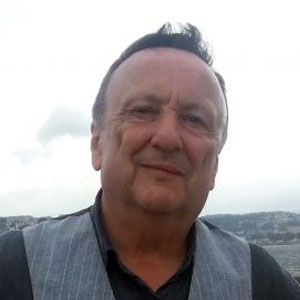Editor’s Blog – Autumn Issue 2019 (33:1)
No longer wanted – are some types of people being screened out?
In this issue we carry a feature about Ivy Angerer, a young woman with learning disabilities born in Scotland to German/ Austrian parents who died aged 29 in 1940, a victim of the Nazi killing programme against disabled people (Finding Ivy, a life worthy of life)
This is first and foremost a human story about the terrible tragedy that can unfurl when people with learning disabilities are seen as less than human. It is also a tribute to two incredibly intrepid and dogged researchers, Helen Atherton and Florian Schwanninger, who for six years have pursued the story of what happened to Ivy Angerer to enable her to have a name, a face and a life, rather than be consigned to the nameless oblivion that Nazism wished upon her.
At the end of their article Atherton and Schwanninger draw links to some current practices which reflect attitudes to the most vulnerable today, including ante-natal testing for Down syndrome. Are we too trying to eliminate certain types of human being from our world? Do the eugenic doctrines which underpinned, in their most extreme form, fascist ideology still linger more subtly in our thinking today?
The actor (and mother of a child with Down syndrome) Sally Phillips, who is prominent in the debate about ante-natal screening, has argued that screening is not about eliminating a disease, but about removing a certain type of human.
She has also acknowledged that it is a complex ethical issue where the right of a certain type of human to exist can clash with the right of a woman to make choices about her own body. However, she argues that the information given alongside ante-natal tests should be accurate and balanced, and not predicated on the belief that children with Down syndrome in particular, and children with disabilities in general, are a bad thing for the world and need to be prevented.
No one is saying that those who advocate ante-natal testing as a preventative mechanism for doing away with Down syndrome are equivalent to Nazi ideologues who carried out the deliberate and systematic murder of people with disabilities 80 years ago. Or at least no one should be saying that.
But we must ask what lies beneath people’s thinking when they advocate mass ante-natal screening, or, for example, unthinkingly apply ‘do not resuscitate’ notices to hospital patients with learning disabilities. If at heart they believe that there should be no place in the world for people with disabilities, then their thinking is all the more dangerous for its subtlety and invisibility
Great stories or ‘inspiration porn’?
A recent controversy on Facebook involved an accusation, by a disability activist, of ‘inspiration porn’ against somebody who had posted a video of a young man with autism playing ‘Bohemian Rhapsody’ on the piano. This was a previously unknown phrase to your editor, but caused an outbreak of serious reflection and self-examination.
We often carry stories in this magazine of people with learning disabilities who have achieved in their field or who have proved to be exceptional human beings in some way.
In this issue we feature an interview with Greg Silvester, a superb gymnast and Olympic ambassador who has achieved great things in his life, (A gymnastic gold rush – Sean Kelly interviews Greg Silvester) as well as the story of Francesca Goff and Harley Jolley, two young people with Down syndrome who addressed the United Nations (Ambition makes a global message) .
Readers should be assured that when we carry such stories it is not, as the activist put it, our intention to be ‘heart-warming … to make neurotypical people go all glowy inside and say “aww aren’t they sweet!”’ – it is to draw attention to the work that certain exceptional people are doing, and to redress the imbalance we face in a society that too often frames people as passive and incapacitated, worthy of pity but not of respect.





